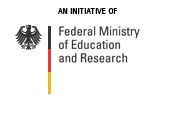Veit Hornung: How the immune system recognises enemies
-
 <ic:message key='Bild vergrößern' />
<ic:message key='Bild vergrößern' />
- Veit Hornung is professor at the Institute of Clinical Chemistry and Pharmacology of the University Clinic in Bonn. Source: Hornung
20.12.2009 -
"Foreign" or "own" is the question. How can the human immune system detect whether a substance is alien, and must be confronted? And when can the body's own police force know that something is not dangerous, and that no immune response is required?Veit Hornung is attempting to unravel these puzzles - with success. Just recently, the 33-year-old medic was awarded 'starting grants' by the European Research Council amounting to 1.7 million euros. However, he's got his sights on more than just research.In the near future, the father of two is planning to found a biotechnology company together with colleagues.
"Actually, I wanted to be a surgeon," admits the professor at the Institute of Clinical Chemistry and Pharmacology of the University Clinic in Bonn. But science put me under her spell during my doctoral work with Professor Stefan Endres and Prof. Günther Hartmann at the Ludwig-Maximilians University in Munich. This was when the student first came into contact with the subject of "nucleic acid detection in the immune system." After working as a research assistant, Hornung moved from the Bavarian capital to pursue his career overseas. "I consciously decided to go to the relatively unknown University of Massachusetts Medical School," says the Munich native. Relatively unknown it might be, but this public research university with a research focus on RNA interference is well stocked with outstanding scientists, including Nobel laureate Craig Mello.
1.7 million euros for the next generation
Hornung has been a full professor at the University of Bonn since November 2008. "I feel very comfortable here," he says. "I've got a super team, a great university environment, and the best job in the world." And now his scientific passion and commitment to research has paid off: Hornung was one of 14 young German researchers to be considered for the 1.7 million-euro "ERC Starting Grant". More than 2,500 researchers had applied for the second tendering of the prize; 238 were successful, of which only about 80 had a background in the life sciences. The professor is already clear about what he will be doing with the money: "It will go into further research on the innate immune system."
Hornung and his eight-person team are occupied with the mechanisms of detection of foreign DNA: The innate immune system decides on a daily basis and with exact precision whether viruses, bacteria or other pathogens have penetrated the body and, if this is the case, combats them with a devastating immune response. The body's own substances are recognised as peaceable, and are not attacked. But how does the immune system differentiate between friend and foe? "We found out that viral, double-stranded nucleic acids are detected by a receptor," says the doctor. This receptor, called AIM2, stands for "Absence in Melanoma," meaning something like "free of skin cancer cells." "AIM2 is located in the cell cytoplasm – that is, in a place where you will not find any other human genetic material," explains Hornung. On contact with viral DNA, these receptors sound an alarm and put the body in readiness mode. This discovery is interesting for basic researchers, and could also open up new therapeutic approaches in relation to diseases such as lupus. In this autoimmune disease, the body's own antibodies are directed primarily against double-stranded DNA.
Planning to found a company
The father of two young children has long-term plans to found company of his own alongside his former boss from his Munich days, Günther Hartmann, now director of the Institute for Clinical Chemistry and Pharmacology in Bonn. Being one of the winners in the third round of the GO-Bio Competition from the Federal Research Ministry (more...) will no doubt have aided in this decision. The researchers are hoping to bundle their knowledge of immune system activation specifically for this purpose. "The focus will be the development of adjuvants," say the prospective company founders. These artificial agents are already added to almost all vaccines, and stimulate the innate immune system – without them, many vaccines would be completely ineffective. Luckily for Hornung, there's also a great deal of room for the improvement of adjuvants:"If we could develop potent adjuvants on the basis of viral nucleic acid sequences, then vaccines would offer better immune protection," says Hornung.
Author: Andrea van Bergen


